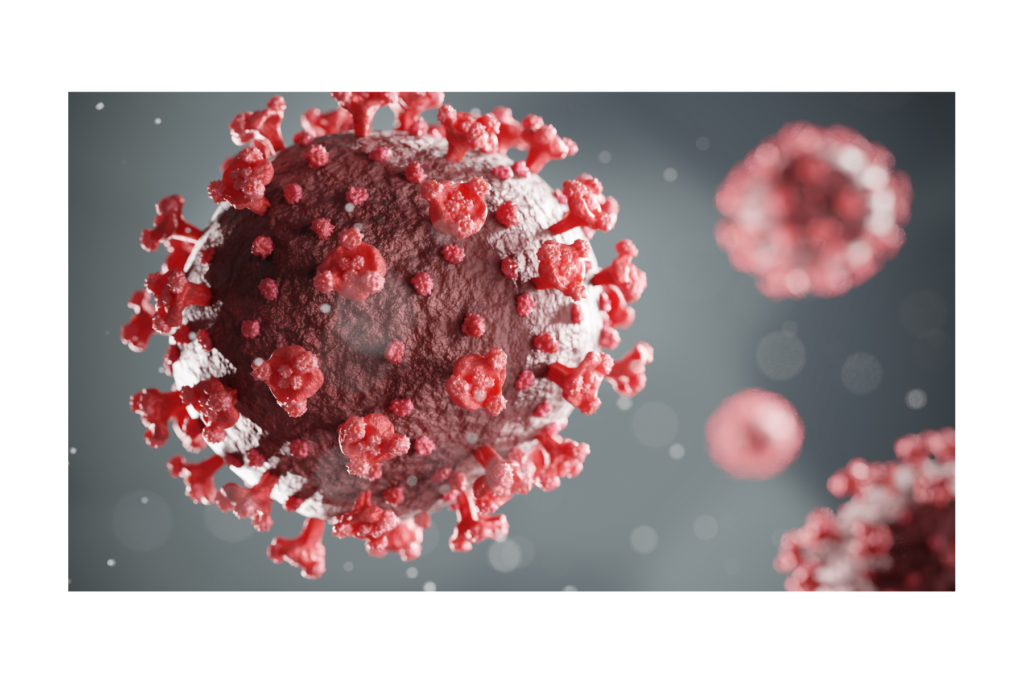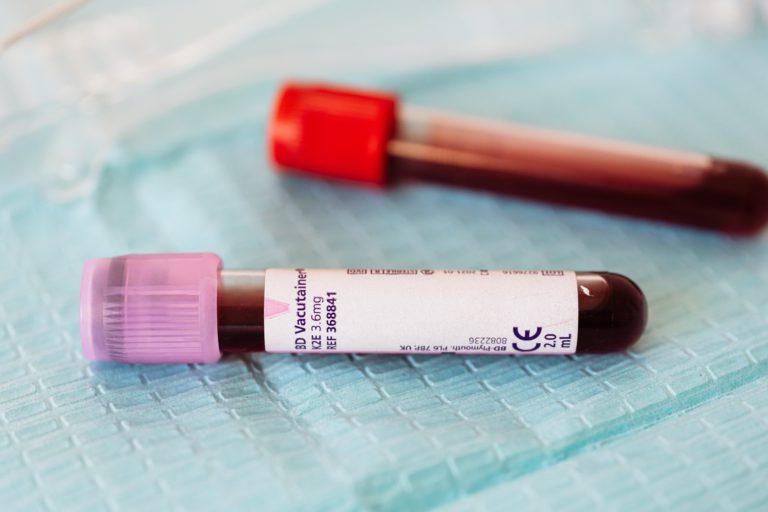Dry throat is a common symptom that can be caused by a variety of factors, including allergies, colds, sleeping with your mouth open, and dehydration. While not typically life-threatening, dry throat can also be a symptom of more serious illnesses such as COVID-19. Luckily, many of the causes of the dry throat can be treated with over-the-counter medications and at-home remedies. However, it can be difficult to determine the exact cause of your dry throat on your own. If your symptoms persist or you have concerns, it’s always a good idea to speak with your healthcare provider.
It can be difficult to tell exactly what is causing a sore or dry throat as it’s a common symptom of many illnesses and it can also be caused by various lifestyle factors.
Colds and flu are known to cause a dry throat, and millions of Americans get these viral infections each year.
Similarly, allergies and COVID-19 can also cause dry throat.
Allergic rhinitis affects 60 million Americans annually, while the latest statistics from the World Health Organization (WHO) reveal over 12,000 daily COVID-19 cases in the U.S.
Because dry throat is such a common condition, it can be difficult to determine the cause.
In this article, we’ll take a closer look at many of the factors that could be contributing to dry throat, as well as how to treat and manage symptoms.
What is Dry Throat?

A dry throat is a condition characterized by a sensation of dryness, irritation, or scratchiness in the throat. Other symptoms may include difficulty swallowing, hoarseness, and a sore throat. A dry throat can occur as a result of a range of causes, including viral infections, allergies, dehydration, and sleeping with the mouth open.
Why do I Have a Dry Throat?
Several factors can contribute to dry throat. The condition may occur due to viral infections like colds and flu, which can cause inflammation and irritation of the throat tissues. Allergies can also cause dry throat, as can lifestyle habits such as sleeping with the mouth open, smoking, and exposure to dry air. Additionally, some medical conditions like acid reflux and Sjogren’s syndrome can lead to a dry throat.
Propolis Throat Spray by Beekeeper’s Naturals
Are you battling a dry throat and wondering if it’s a symptom of Covid-19, the common cold, or the flu? In these uncertain times, it’s crucial to find effective, natural solutions to ease discomfort and support your immune system. That’s where Beekeeper’s Naturals Propolis Throat Spray comes to the rescue!
Why Beekeeper’s Naturals Propolis Throat Spray?
Natural Relief: Beekeeper’s Naturals Propolis Throat Spray is crafted with 95% pure propolis extract, sourced from bees. Propolis is renowned for its natural antibacterial and anti-inflammatory properties, making it a powerful ally against throat discomfort.
Immune Support: Packed with antioxidants, vitamins, and minerals, propolis not only soothes your throat but also boosts your immune system. It’s a natural shield against various infections, making it an ideal choice during flu and cold seasons.
Fast-Acting Formula: With its convenient spray application, this throat spray provides quick relief precisely where you need it. Say goodbye to that irritating scratchy feeling and hello to instant comfort.
Ethically Sourced: Beekeeper’s Naturals is committed to sustainable beekeeping practices, ensuring that their products are ethically sourced and eco-friendly. By choosing Beekeeper’s Naturals, you’re supporting a brand dedicated to the well-being of both consumers and bees.
Why We Recommend Them:
Having Beekeeper’s Naturals Propolis Throat Spray on hand is a wise decision, especially during the changing seasons when our immune systems might need an extra boost. Whether you’re experiencing a dry throat due to Covid-19 concerns, the common cold, or the flu, this natural remedy offers relief you can trust.
Get Beekeeper’s Naturals Propolis Throat Spray here Feel the natural relief, and take charge of your well-being with Beekeeper’s Naturals Propolis Throat Spray!
The Importance of Treating Dry Throat:
While dry throat is not typically a severe condition, it can be uncomfortable and cause difficulty swallowing or speaking. In some cases, untreated dry throat can lead to complications such as throat infections or voice changes. Additionally, if the dry throat is a symptom of an underlying condition like COVID-19, treating the underlying cause is essential to prevent complications and promote overall health. Treating dry throat may involve self-care measures like drinking plenty of fluids, using a humidifier, or sucking on lozenges. In some cases, medical treatment may be necessary, such as medications to reduce inflammation or allergy symptoms.
What Causes a Dry Throat?
A dry throat can be caused by a range of factors, including viral infections such as colds and flu, allergies, lifestyle habits like smoking and sleeping with the mouth open, exposure to dry air, dehydration, and certain medical conditions. Because there are so many possible causes, pinpointing the precise reason for dry throat can be challenging. In some cases, medical evaluation and testing may be necessary to identify the underlying cause.
Some Causes Include:
Normal or seasonal allergies
An allergic reaction happens when the immune system overreacts to normal substances in the environment such as dust, pollen, or pet hair. These allergies can be seasonal or perennial and are often treated with over-the-counter medicines.
The symptoms of allergies can range from mild to severe and include a runny or stuffy nose, itchy and watery eyes, sneezing, postnasal drip, fatigue, and congestion in the nasal tract. Mouth breathing due to congestion can also cause a dry throat.
Allergies can persist for four to six weeks or an entire season and typically occur around the same time each year. Identifying the specific allergen triggering the reaction can help manage symptoms effectively.
The common cold and flu
The common cold and flu are viral infections that primarily affect the respiratory system, causing a range of symptoms such as:
- aches
- chills
- fatigue
- muscle weakness
- sneezing
- congestion and sore throat
While the symptoms of these two illnesses are similar, the flu can also cause a headache and fever. Symptoms for both usually last between one to two weeks. The congestion caused by colds and flu can lead to mouth breathing, which can contribute to a dry throat.
Covid-19

A dry throat isn’t a common symptom of COVID-19, but it can result as a side effect of other symptoms like congestion or shortness of breath.
Some signs of a sore and dry throat that may be caused by COVID-19 are similar to those of a common cold, including a scratchy and painful throat that worsens when swallowing.
If you suspect COVID-19 is causing your dry throat, check if you have any of the following symptoms as well:
- Fever
- Dry cough
- Headaches
- Shortness of breath
- Loss of taste and/or smell
- Nausea and vomiting
- Muscle and body aches
- Congested or runny nose
- Diarrhea
To confirm your condition, you’ll need to take a COVID-19 test.
COVID-19 is highly contagious, so it’s important to follow an isolation plan to keep those around you safe.
Distinguishing the Difference Between Allergies, COVID-19, Colds, and Flu Symptoms
It can be challenging to distinguish the cause of your dry throat. To help you identify the potential source, the following table highlights the typical symptoms associated with each illness.
If your symptoms persist or worsen, it’s recommended to seek medical attention immediately.
Symptom: Congestion
Allergies: common
COVID-19: common
Common Cold: common
Flu: common
Symptom: Headaches
Allergies: rare
COVID-19: common
Common Cold: common
Flu: common
Symptom: Cough
Allergies: may occur
COVID-19: common
Common Cold: common
Flu: common
Symptom: Fatigue
Allergies: may occur
COVID-19: common
Common Cold: common
Flu: common
Symptom: Sneezing
Allergies: common
COVID-19: may occur
Common Cold: common
Flu: common
Symptom: Fever
Allergies: rare
COVID-19: common
Common Cold: may occur
Flu: common
Symptom: Loss of taste or smell
Allergies: may occur
COVID-19: common
Common Cold: rare
Flu: rare
Symptom: Nausea or vomiting
Allergies: rare
COVID-19: may occur
Common Cold: may occur
Flu: may occur
Symptom: Dry throat
Allergies: may occur
COVID-19: may occur
Common Cold: may occur
Flu: may occur
Symptom: Muscle aches
Allergies: rare
COVID-19: common
Common Cold: common
Flu: common
Symptom: Sore throat
Allergies: may occur
COVID-19: common
Common Cold: common
Flu: common
Symptom: Shortness of breath or difficulty eating
Allergies: rare
COVID-19: common
Common Cold: rare
Flu: common
Other Medical Reasons
Some nonrespiratory issues can also be a reason for a dry throat. Here are a few to look over.







